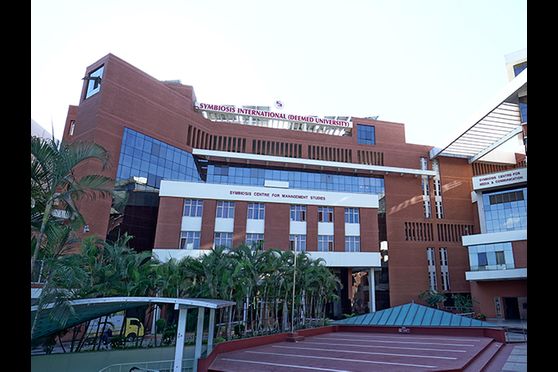SCMS Pune's 'cafeteria approach' helping students be future-ready


Symbiosis Centre for Management Studies (SCMS) Pune follows a special teaching-learning methodology, called 'the cafeteria approach', to help students be future-ready. The approach, introduced almost a decade ago, is an innovative pedagogy of learning that involves students and their holistic development throughout the process, rather than limiting them to books, subjects, or notes. The cafeteria method of learning provides a list of options for young professionals.
The Government of India's New Education Policy (NEP) 2020 has also stressed on a holistic and multi-disciplinary educational approach with flexibility of subjects, so that learners have the ability to choose their learning trajectories and programmes.
This approach followed by SCMS allows students to explore their interests by giving them the freedom to choose from a variety of specialisations and create a basket of their preferred topics. This assists them in developing certain abilities for their professional career. A variety of pedagogical methods is the best way to assist future industry leaders, the institute felt.
Students have the flexibility to choose from a range of electives and to study subjects that they want to. They do not just learn management subjects but are also given a multi-disciplinary exposure, where they have the option to learn subjects like design/law/ photography or even culinary arts to name a few. This multi-disciplinary approach is called 'floating credits'. It provides a holistic view and a student gains many skills that are essential in all phases of life and is easily transferable across work environments.
According to Adya Sharma, director of SCMS Pune, "We saw the necessity to develop the study of entrepreneurship and environmental management from two courses to a set of courses leading to a speciality under the requirements of the country's environmental and employment landscape."
She added, “The main objective of the institution is to offer its students a solid knowledge basis, inspire an interest in research, instil values, promote general development via cultural and sporting activities, and create a learning environment."
The institute commenced its programme with a basic BBA course involving three tracks to select from i.e. corporate management, accounting and finance, and international business. The global education landscape has evolved and changed dramatically over the years, and so have the needs of the students and marketplace. Addressing this change, the institute divided corporate management into human resources management and marketing management.
The curriculum at the UG level should not be excessively focused or strait-jacketed, feels the institute. The adoption of the cafeteria approach has enabled it to provide a learning environment to its students, enhance students' entrepreneurial abilities, and create future-ready leaders and global citizens.
To enhance the global experience of the students, the curriculum is also enriched with activities and programmes such as Global Immersion Programme (GIP), summer schools, guest lectures by foreign faculty etc.